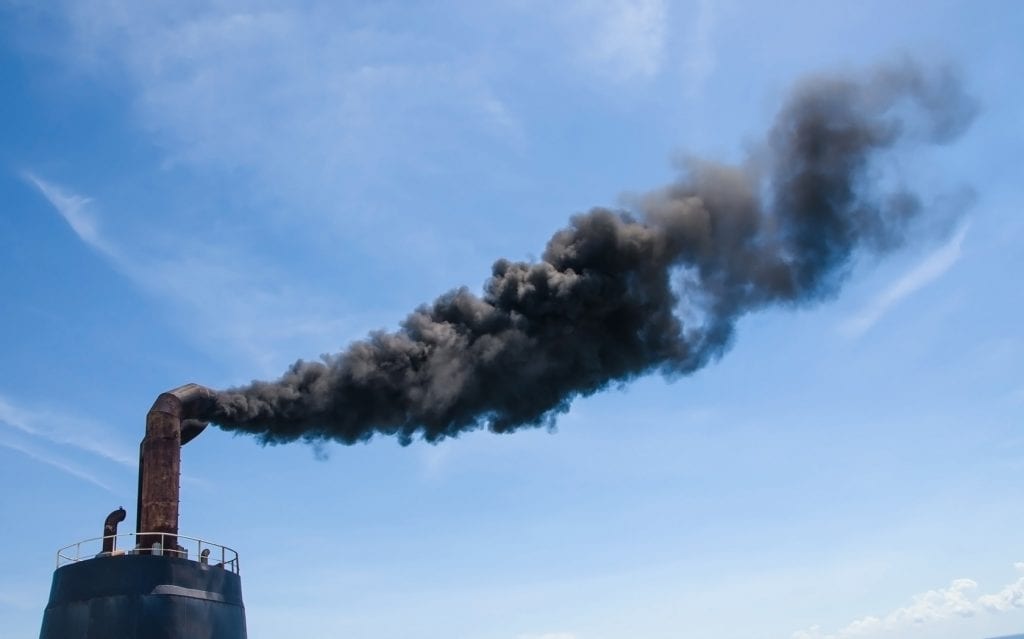Introduction
Following on MM Risk Bulletin No 19, for those members who have elected to meet their MARPOL 2020 sulphur emission obligations by fitting exhaust scrubbers to their vessels, it is important to be aware of the growing list of coastal states and ports that have now banned the use of Open Loop scrubbers within their control areas. This Risk Bulletin is therefore focused on highlighting the difference between the Open and Closed Loop systems and the controversial decisions now being made – apparently without full supporting scientific evidence – to ban the discharge of exhaust wash water from Open Loop Scrubber systems.
Background
According to data from shipping analysts Drewry, the cost of retrofitting scrubber units, inclusive of lost voyage earnings, is high at an average of about USD 4.3 million for a VLCC tanker. However, a tanker or bulk carrier fitted with scrubbers can continue to burn bunker fuel with a sulphur content of 3.5% which is currently available at about USD 200.00/ton less than 0.5% low sulphur fuel. The cost differential will probably decline as the rush to beat the 1 Jan 2020 deadline passes and 0.5 % fuel becomes more readily available.
MARPOL 2020 provides a regulatory choice to shipowners: either switch to 0.5% compliant low sulphur fuels or install approved exhaust scrubbers. If scrubbers are elected, the shipowner must then choose between Open Loop, Closed Loop or a more expensive Hybrid System which allows a ship’s engine crew to select either Open or Closed Loop scrubber operation.
What’s the difference between Open Loop and Closed Loop Scrubbers?
The IMO considers exhaust gas scrubbers to be an acceptable means of reducing ship sulphur emissions and ensuring compliance with MARPOL Annex VI. A separate guideline, Resolution MEPC.259(68), specifies the requirements for the verification, testing, survey and certification of scrubber systems and sets out the criteria for discharging scrubber washwater into the sea.
Open Loop scrubbers discharge the sea water used to clean exhaust emissions back into the sea while Closed Loop scrubbers retain the emissions for disposal ashore at port facilities. However, IMO member states now seem divided over the use of Open Loop scrubbers due to environmental concerns relating to the discharge of ‘polluted’ wash-water into the sea. As a result, a number of countries have banned the use of Open Loop scrubbers in their port authority waters. The effect is to obligate the use of either Closed Loop scrubbers or 0.5% low sulphur marine fuels while in the coastal state and port controlled waters of these countries. Violations will no doubt result in significant fines.
Do Open Loop Scrubbers actually discharge dangerous pollutants?
Advice provided by the Exhaust Gas Cleaning System Association (EGCSA) is as follows:
“Scrubber wash water removes and converts Sulphur oxides from the exhaust gases so they are discharged in the wash water as harmless sulphate. After sodium and chloride, sulphate is the most common ion in seawater. Even if all of the sulphur in all of the world’s petroleum reserves were to be scrubbed, the increase in ocean sulphate would be infinitesimally small. Scrubber wash water discharges are also continuously monitored and subject to strict discharge limits. Various studies have concluded that any reduction in pH from scrubbing, will be insignificant when compared with that resulting from increasing atmospheric CO2 absorbed by the oceans.”
It can be seen that the EGCSA’s answer is not definitive. This is no doubt one of the reasons for current concerns and on-going studies by a number of IMO members and environmental NGOs. It is also the case that the EU is pressing the IMO “…to evaluate and harmonize the development of rules and guidance on the discharge of liquid effluents from EGCS, including conditions and areas.” The IMO have agreed to this process and are now obligated to investigate and respond.
What countries and ports have banned Open Loop scrubber discharges?
At the time of writing this Risk Bulletin, there does not appear to be a definitive list available from the IMO or the ICS. MM members who may have fitted Open Loop Scrubbers to their vessels should therefore be very careful to check with local agents as to what the national restrictions may be in the waters their vessels will be passing through and the ports they will be entering.
An unofficial list of the Asian countries and ports into which MM members may be trading and which have imposed bans on discharges from Open Loop Scrubbers is as below.
| Country | Area/Ports | Details as known |
|---|---|---|
| China | Chinese territorial waters (out to 12 n.mi. from nearest land). | China’s MOT ‘Notice on Regulating the Implementation of Supervision and Management of Ship Air Pollutant Emission Control Areas’ states that from 1 January 2019 discharge of washwater from Open Loop scrubbers is prohibited in the county’s inland emission control areas (ECAs), port water areas of coastal domestic ECAs and Bohai Bay waters. Extension to all of China’s territorial waters is expected to commence on 1 Jan 2020. |
| Singapore | Singapore port limits. | MPA Guide for Ships Calling at Singapore. Open Loop discharge prohibition commences 1 Jan 2020. |
| Malaysia | Malaysian territorial waters (out to 12 n.mi. from nearest land). | MSN 07/2019 – prohibits discharge of wash-water from Open Loop systems. Issued mid Nov 2019 and apparently in force. |
| India | Not specified. | DG Engineering Circular 05 of 2018 states that Open Loop scrubber washwater discharge is allowed subject to IMO MEPC.259(68) criteria. This is qualified by a requirement that local regulations must also be followed. Currently not clear if local restrictions will be imposed |
| UAE | Abu Dhabi and Fujairah port limits. | Abu Dhabi – in 2013 the Port Authority issued ‘Vessel Discharge and Maintenance Guidelines for Owners and Masters’. The Guideline states that scrubber discharge which contains pollutants may not be discharged into the sea. Fujairah – Notice to Mariners No. 252 of 22 Jan 2019. Unclear as to when this Open Loop scrubber discharge ban comes into force but can be inferred as being from 1 Jan 2020. |
Conclusions and Takeaway
At present, up to 21 coastal states and ports worldwide are discussing and enforcing bans on Open Loop system discharges. Their expressed concerns are the adverse effects of scrubber washwater on the marine environment and the apparent imprecision of the IMO’s MEPC.259(68). It is therefore likely that the list of states/ports which currently or will soon prohibit Open Loop scrubber discharges in their waters will grow over the coming months and years.
In those areas where the discharge of Open Loop washwater is not permitted, MM Members have two options to ensure compliance with the IMO 2020 0.5% low sulphur limits and coastal/port state Open Loop washwater discharge regulation:
- Use compliant low sulphur fuel instead of Open Loop scrubbers; or
- Switch over to Closed Loop mode of operation if the system fitted is a Hybrid Closed/Open Loop system or convert to a Hybrid system if not already fitted.
Any changeover (to either compliant low sulphur fuel or Closed Loop scrubber operation) should be carried out well in advance of the vessel entering the areas with Open Loop discharge prohibitions in place. This will aid the identification of any operational issues after the changeover and allow sufficient time for rectification before the vessel enters the Open Loop prohibited area.
MM members who may have opted to achieve IMO 2020 compliance through the use of Open Loop exhaust scrubbers should confer closely with their Ship Managers, Masters, Chief Engineers and local port agents to ensure full compliance with IMO 2020 and all coastal state and port regulations relating to Open Loop washwater discharges prohibition. Fines and clean-up costs could prove to be very costly.
Members should also ensure that up-to-date coastal state and port regulations are referred to and actioned as an integral part of the requisite STCW Passage Planning exercise. Each vessel’s and company’s ISM Code/SMS Procedures should also be amended to reflect this requirement. Finally, MM members are respectfully reminded that a breach of regulation by their ship’s crew and Ship Managers may negate their P&I cover in respect of associated losses and fines.


